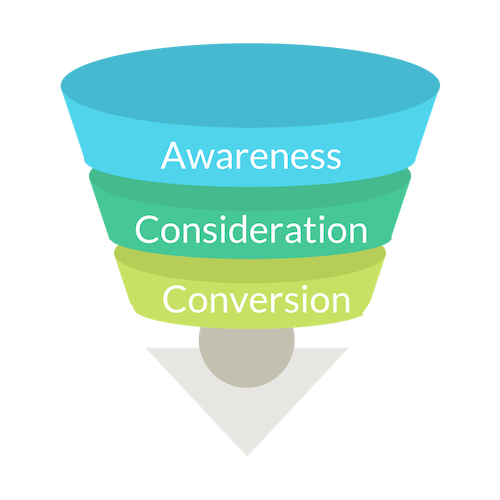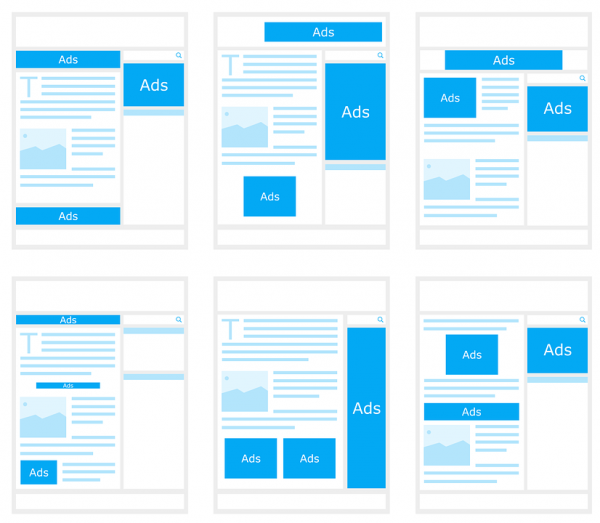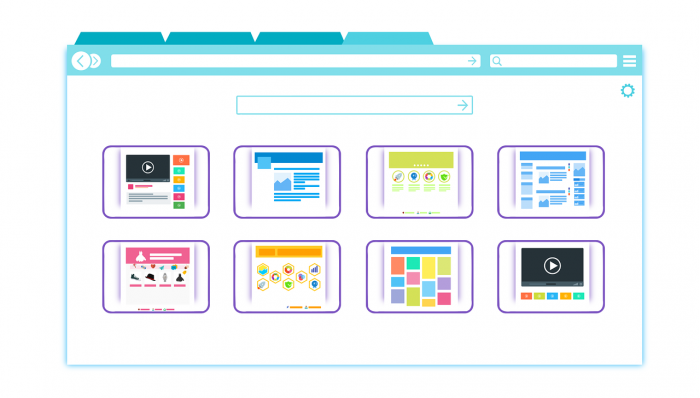Strategy
Strategy
Funnel Advertising And The Customer Experience
Apr 20, 2019
Strategy
Apr 20, 2019
As the environment of digital marketing is fast-changing and developments within this field require marketers to stay up-to-date, funnel advertising is definitely something every online marketer should be familiar with today. If you don’t want to fall behind on funnel advertising, be sure to read on and find out what you need to know!

Funnel advertising is when businesses consider the different stages a consumer goes through in their customer journey when designing their advertising campaigns. This allows them to use the right advertising strategy to the right customer at the right time.
By doing so, the rate of conversions can be increased, as well as the return on investment on your campaigns. Though several versions of funnel marketing can be found online, it usually comes down to a three-layered filter or funnel.
The first and top layer of this funnel is related to the ‘awareness’ stage in the process. This is where you have consumers who are not yet familiar with your business. In this stage, companies should try to capture the attention of these consumers in order to create awareness for their brands and/or the problem they are able to solve.
This phase is often referred to as ‘Top of Funnel’ or ToFu. Some ways in which companies could use advertising to target consumers in this layer would be to invest in sponsored content and ad networks (PPC), as well as through email sponsorships. For example, think about social ads, display advertising, content marketing and video advertising.
When designing advertisements for this stage, make sure the message you want to convey is simple, clear and introductory. Since consumers are not yet close to the purchasing decision, it won’t be efficient to target them with in-depth product/service information or tactics.

After the awareness layer comes the consideration/interest stage, or the ‘Middle of Funnel’ (MoFu). Here you will find consumers those that already know about your business or are already existing customers. This is where we start lead nurturing and remarketing, in order to convince those consumers that your brand is the one they should choose.
After encountering the top-funnel advertisement as a display ad on Facebook, for example, you could remarket those leads with a paid search ad or through email campaigns, social ads and search engine marketing.
The last layer in this advertising funnel is the conversion stage. Consumers who are familiar with your business and are about to become customers are placed in this Bottom of Funnel (BoFu) phase. These consumers already know about their ‘problem’ and the possible solution to solve this problem, but still have to decide which solution is best for them.
They will now start searching online for the specific options and compare those to each other. As this is the last stage in which marketers are able to influence the consumer before they are moved on to sales, be sure to provide them with that last push of information they need to go on.
Appropriate advertising tactics to use in this stage are, again, remarketing campaigns and search engine marketing, along with social retargeting. Also bear in mind that you should make sure to provide high-quality ads and targeted audiences, as well as enabling the possibility to track the results.
So, where does the customer experience come into place? First, let’s make sure that we understand the concept of customer experience itself.
Customer experience involves a lot of different aspects, but ultimately it comes down to the customer’s perception of your brand and the interactions they’ve had with it. These interactions, also known as touch points, are related to processes such as marketing communications, your product/service itself, the sales process and after-sale services.
Now, customer experience is an important concept to consider when creating and running advertising campaigns. Each of the stages we’ve discussed above is part of the customer experience of your brand.
By constantly maintaining a customer-centred vision, marketers are required to consider the effective purpose of each ad and make sure these ads contribute to help in building a positive and strong relationship between the consumer and the brand.

As mentioned before, taking funnel advertising into account will help businesses improve the efficiency of their campaigns, as well as increasing their return on investments. The efficiency would be improved due to the fact that consumers would then be guided through a part of the customer experience with content that caters to their interest.
This will consequently boost your brand recognition, meaning it will keep you on consumers’ shortlist of preferred brands now and potentially in the future. This will ultimately establish a base for the sustainable growth of your business!
Though the advertising funnel seems logical and self-evident, the way people go through customer journeys or purchasing funnels is changing. Each consumer may take a different ‘route’ through their journey as the consideration stage is broadened.
This means that a person might enter the consideration stage after being made aware of a certain product or service, but remains in this stage for long periods due to extensive research. Nowadays, consumers usually encounter dozens or even hundreds of touch points before actually making a purchase.
Since many options are readily available and information is inexhaustible and just one click away, the consideration stage might take up more time than before. Though they might come close to considering a set of brands for their final decision, they may very well also broaden their search again to narrow it down to other categories.
Some consumers could even have already chosen a brand, but change their minds last minute after checking online reviews. That’s because every detail is collected and considered before making the final purchasing decision.
This shows that businesses need to be ever-present, useful and fast when it comes to delivering experiences. It is important that marketers know about these developments and effectively incorporate them into their strategies.
Do you have experience with funnel advertising or is this your first time hearing about it? Do you think there are other strategies to make advertising more efficient that should also be considered?
If you want to learn more about funnel advertising, be sure to check out this white paper!
Let us know by leaving a comment below! If you want to be up-to-date with other topics related to online marketing and digital advertising, make sure to subscribe to our newsletter and receive great content each month!